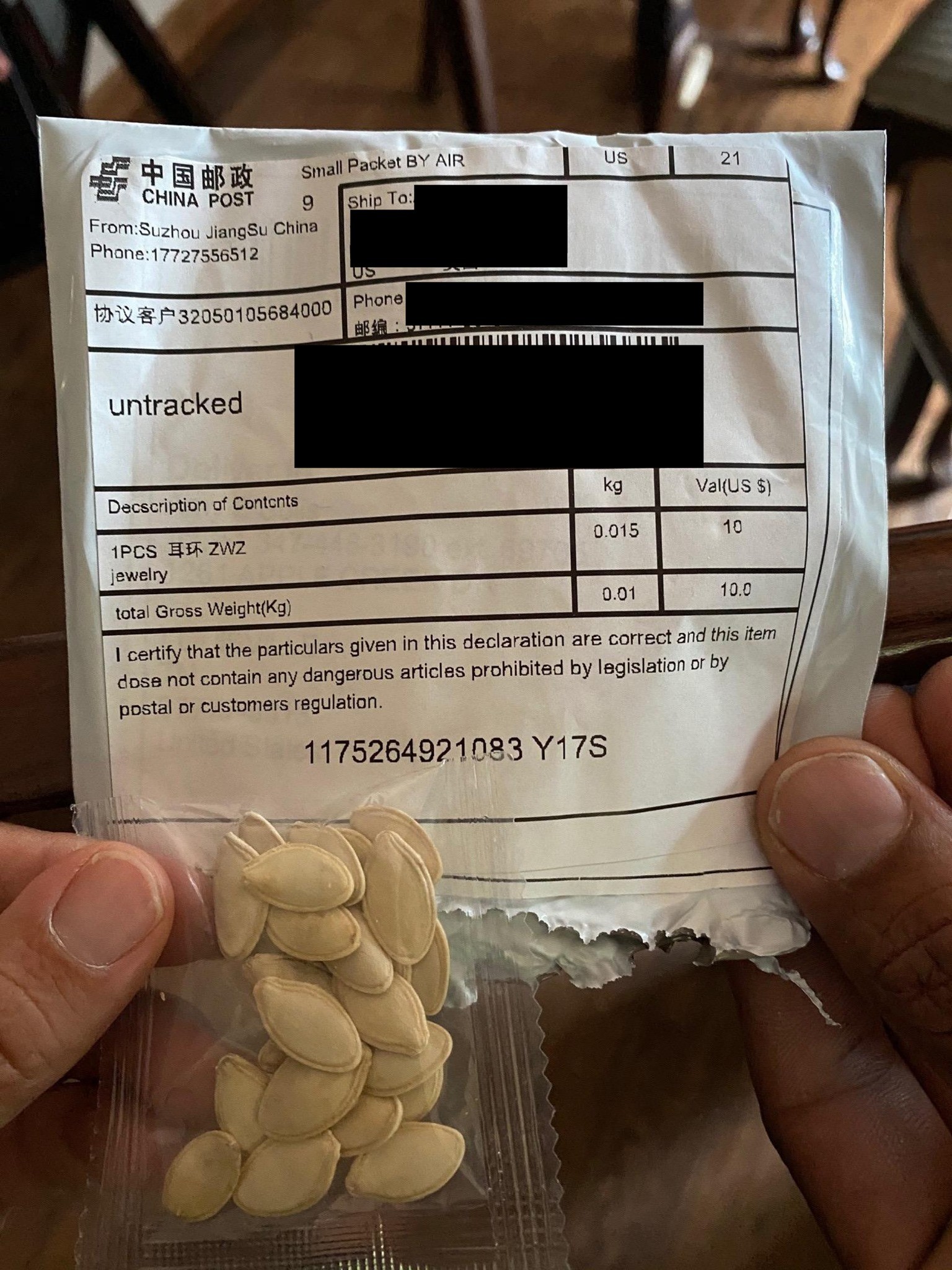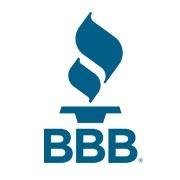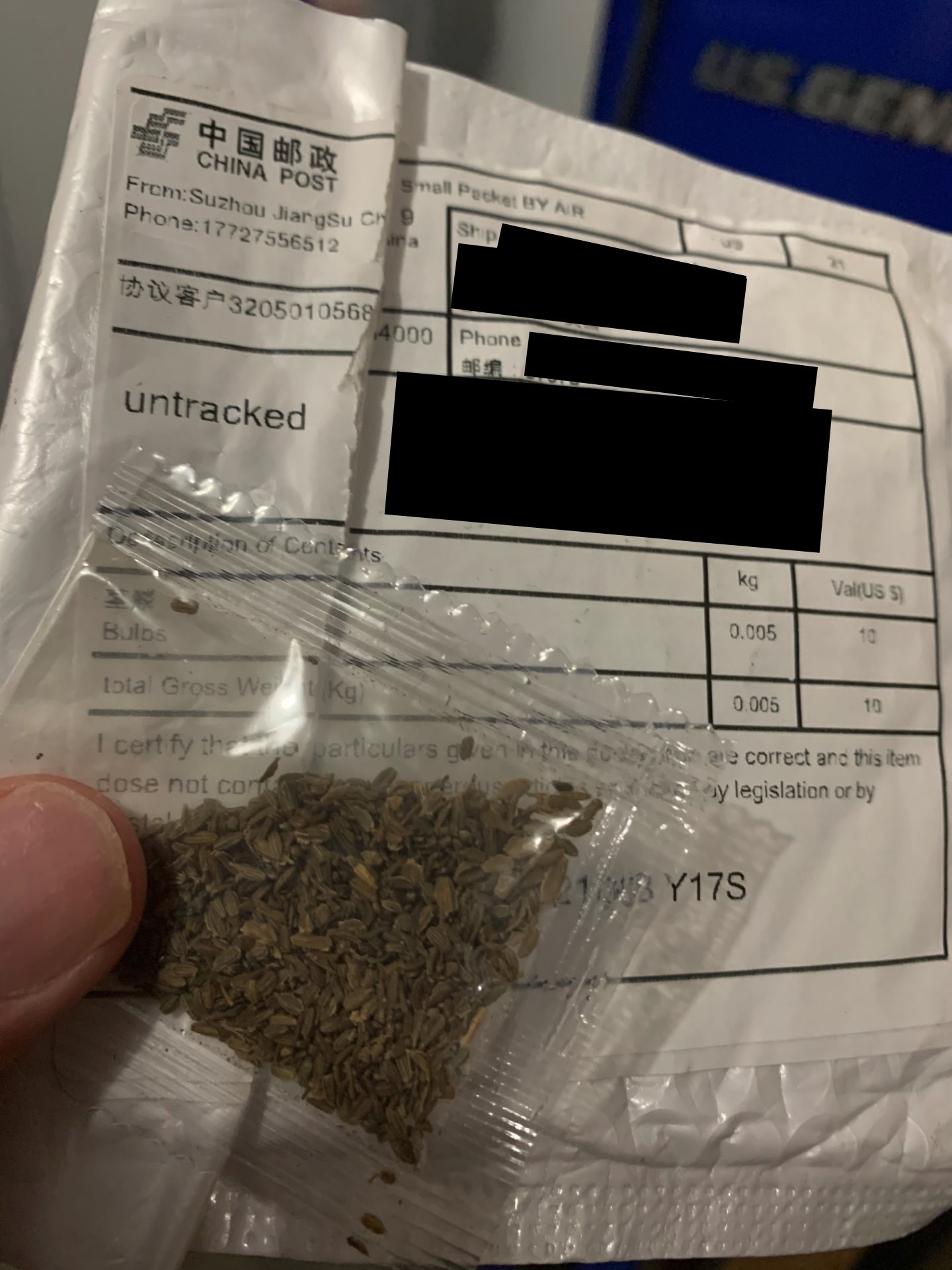 Tennessee Department of Agriculture/Facebook
Tennessee Department of Agriculture/Facebook
If a weird package of seeds showed up at your house from Amazon recently, you’re not alone. But you might want to check your account, and Tennessee agriculture officials are asking citizens to not plant the seeds.
A brushing scam is popping up all over the country. The Better Business Bureau (BBB) first reported the scam on July 2nd, and the organization says it has a “scary downside” for consumers.
The brushing scam works like this according to the BBB: 
“The companies, usually foreign, third-party sellers that are sending the items, are simply using your address and your Amazon information,” the consumer protection organization said in a statement. “Their intention is to make it appear as though you wrote a glowing online review of their merchandise, and that you are a verified buyer of that merchandise. They then post a fake, positive review to improve their products’ ratings, which means more sales for them. The payoff is highly profitable from their perspective.”
 Tennessee Department of Agriculture/Facebook
Tennessee Department of Agriculture/Facebook
This is bad for consumers because it indicates that the companies probably have some of your account information, at least your name and address and, possibly, your phone number and password, according to the BBB. Also, “porch pirates” can use that information, then watch for a package and steal it.
If this happens to you, the BBB recommends contacting Amazon immediately and changing your account password.
The brushing scam came to the attention of the Tennessee Department of Agriculture (TDA) this week, according to posts form the agency on Facebook. Officials said the seeds seemed to have been shipped from China and some were labeled as jewelry or beads.
“Imported plant materials — including seeds — go through rigorous testing and inspection to ensure they are not carrying any plant disease or pests and do not pose any threat to our environment and health,” reads the TDA post. “It is not clear that these seeds have gone through appropriate inspection, or if they are the type of seed they are labeled to be.”
~~~LATEST UPDATE ON UNSOLICITED SEEDS~~~
Citizens have contacted the Tennessee Department of Agriculture indicating…
Posted by Tennessee Department of Agriculture on Tuesday, July 28, 2020
Seedy Seed Scam Hits Tennessee, Has ‘Scary Downside’ For Consumers
After checking with the USDA, agriculture officials here said they believed the seeds were, indeed, part of a brushing scam.
“While we have no reason to suspect at this time that these seeds were sent with ill intention, we want to take every precaution to be sure an invasive or otherwise threatening plant species doesn’t take hold here,” TDA said.
Here’s the TDA’s guidelines for anyone who received the seeds:
• What should a person do if they received seeds?
Don’t plant them. Double bag the seeds and all packaging and send to the Tennessee Department of Agriculture, to the attention of Plant Certification.
Our mailing address is:
P.O. Box 40627
Nashville, TN 37204
Our UPS or FedEx address is:
436 Hogan Road.
Nashville, TN 37220
We need your name, contact information, and where you live.
• What if a person received seeds but doesn’t want to ship them to us?
Please notify the Tennessee Department of Agriculture that you received unsolicited seeds. Call plant certification at (615) 837-5137 or email our plant certification administrator Anni Self at anni.self@tn.gov.
We need your name, contact information, and where you live, as well as what you received. Photos are also helpful.
• If you are not shipping the seeds to TDA and prefer to just dispose of them, please double bag them and put them in the trash. It’s not a good idea to compost them.
• What should a person do if they planted the seeds?
We recommend pulling up the plants, double bagging them and putting them in the trash. It’s not a good idea to compost them.
 Tennessee Department of Agriculture/Facebook
Tennessee Department of Agriculture/Facebook